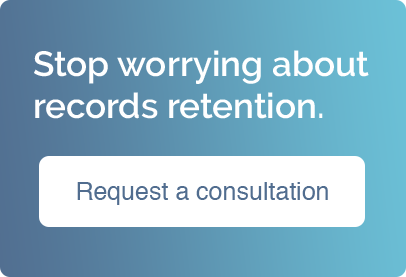Should you keep it or toss it? Tossing out that document too soon can end up costing you and your business. Depending on the type of insurance records you have, you’ll want to follow specific guidelines. Take a look at our tips below to help you figure out what to keep and what to toss.
Worker’s Compensation
When it comes to a worker’s compensation claim, the best practice is to keep the paperwork indefinitely. There is no way to know how long a symptom or condition will take to develop. No matter the length of time, your employees can come back to you to cover their claims. Keep all workers’ compensation documents available.
Employee Benefit Plans
A company must keep all employee benefit plans for at least six years from the date of filing to comply with federal guidelines. If an employee files a claim, you will need to have access to these records. In doing so, you can limit your out-of-pocket expenses.
Property Policies
Whether you lease, rent, or own your property, ensure that you’re covered in the event, there is a loss. That could be due to theft, fire, or a natural disaster. If there is damage, it can cover lost income or increased expenses. Keep these records for at least six years in case a claim needs filing.
Occurrence-Based Policy
An occurrence-based policy protects your business for the long term, so they should be kept indefinitely. In case you switch to another insurance policy or cancel your insurance without replacing it, you will be covered for incidents where an injury or damage takes years to manifest.
Claims-Made Policy
This policy type usually covers new claims while it’s still active. Some policies have a “tail” that extends the policy for a time after cancelation. To ensure you’re covered, hold onto these records for at least six years if something happens.
If you have questions about your records retention program, connect with IRCH for a consultation. We’d be happy to help you get all the answers you need to comply with legal requirements.


